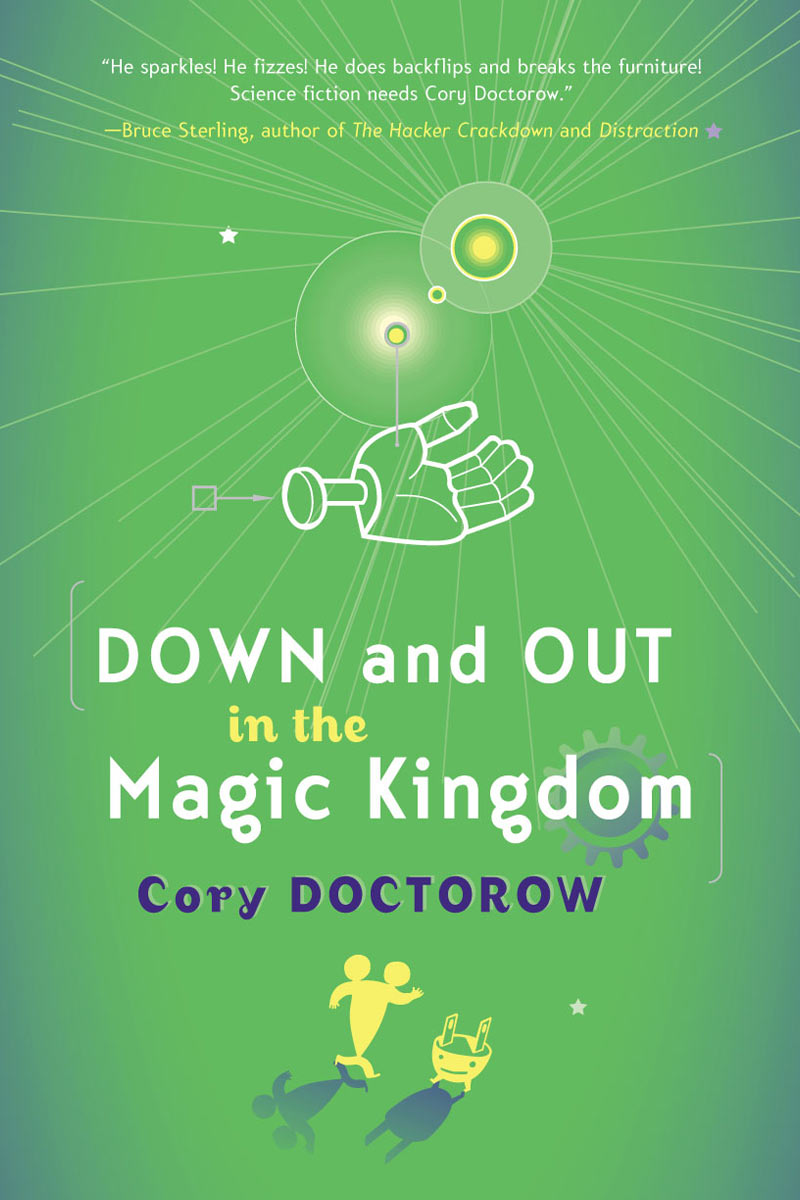Few science-fiction tropes have been done to death so thoroughly as the image of the future as an ultra-high-tech playground, in which human bodies are mutable, death is a temporary inconvenience, and the only remaining social problem is boredom. At its bleeding edge, America is halfway there already; it doesn’t take a great deal of imagination to draw present technology out to a blue-sky conclusion. The imagination comes in predicting how technological evolution will change humanity, and in building a believable world that makes the future worth visiting. Cory Doctorow’s first novel, Down And Out In The Magic Kingdom, borrows freely from tropes established by pioneers like John Varley, Spider Robinson, and Robert Silverberg, and refined more recently by the likes of William Gibson, Neal Stephenson, and Rudy Rucker. But Kingdom establishes its individuality with smooth and practiced ease, drawing out a kinetic, immersive yarn that seems far more detailed than its scant 200 pages should permit. In Kingdom, “free energy” and scientific advances have rendered scarcity and poverty extinct. Near-universal computer networking has created a meritocracy which replaces money with “Whuffie,” a constantly shifting measure of societal esteem. As networked people interact, their computer implants tabulate their respect or contempt for each other; well-regarded individuals receive all the privileges of old-style wealth and fame, while unpopular people become pariahs, granted only the basics in food and shelter. Doctorow establishes his background in a few broad strokes before digging into the meat of his story: a series of machinations between two Whuffie-hungry groups vying for power in Disney World. Like everyone else in Doctorow’s capricious “ad-hocracy,” entertainers live by their popularity: By creating a successful and beloved theme ride, a group can bolster its reputation and gain power for its next social coup. Kingdom’s first-person narrator, Jules–a rejuvenated centenarian with the body of a 40-year-old and a fond fascination for Disney World–leads the charge to maintain the charm of the Haunted Mansion, preserving it from the neophilic organization replacing the Hall Of Presidents’ charming animatronics with virtual simulations and cortical downloads. Their battle is fought half in engineering, where new designs and plans are created, and half in the public eye and on the public net, where they struggle for the popular backing that will keep their rivals at bay. To Doctorow’s credit, their tiny war is as fascinating as it would be if it concerned a matter of actual importance. Kingdom expertly blends the peer-rating mania of current net-entities, from Slashdot to eBay, with current corporate strategies, hiding it all behind a colorful futuristic façade. Meanwhile, Jules puts a personal face on an impersonal world, as he struggles with technological failures, a suicidal friend, a painful love triangle, and an unknown rival who casually, publicly murders him. The result is a moderately prescient, wholly entertaining yarn that’s short enough to be read in a single sitting, and involving enough that it almost inevitably will be.


























